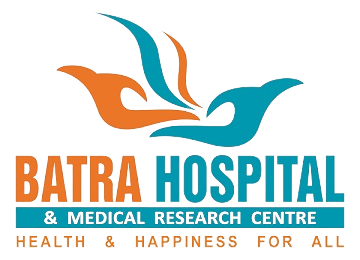The Stethoscope of the 21st century
Artificial intelligence (AI) is the ability of a computer to carry out tasks associated with intelligent beings. Very simply, it means that a computer is functioning and behaving like the human brain, and now possesses intellectual processes characteristic of humans, such as the ability to reason, discover meaning, generalize, logic, or learn from past experiences, and self-correction. Since the development of the digital computer in the 1940s, it has been demonstrated that computers can be programmed to carry out complex tasks which require human-like cognitive ability like solving mathematical theorems or playing chess with great proficiency. Now due to continuing advances in computer processing and memory capacity, they are, to some extent, able to match human flexibility.
It is logical to deduce that AI will revolutionize medicine and healthcare, but this will happen only if AI is available to the average, mainstream users – and not only to the richest medical institutions. As of now, AI solutions are too expensive and too difficult to use , therefore meant for a handful of experts.
USES:
The most obvious application of artificial intelligence in healthcare is data management. Collection, storage, normalization and tracing its lineage – it is the first step in revolutionizing the existing healthcare systems.
The biggest benefits are in improving patient outcomes and reducing costs. Companies are applying machine learning to make better and faster diagnoses than humans. One of the best known healthcare technologies is IBM Watson. It understands natural language and is capable of responding to questions asked of it. The system stores patient data and other available data sources to form a hypothesis. Other AI applications include chatbots, a computer program used online to answer questions and assist patients, to help schedule follow-up appointments or aiding patients through the billing process, and virtual health assistants that provide basic medical feedback. Then we have AI based programs to identify potential treatment plans for a patient. AI DOCTORS in UK take patients’ history and suggest a line of management. Molly the AI Nurse gives support for chronic diseases.
Diagnostics- AI will greatly help in making diagnoses. In radiology, AI solutions are being developed to help in diagnosis, for example to analyse an MRI or CAT scan. Remote setting tools with AI can help in diagnosing, and this will do away with the need for doctors in remote areas. AI based equipment in the hands of locally hired Community Health Workers can diagnose diseases like cervical cancer locally.AI will also enable us in developing drugs and vaccines faster and better.
ROBOTS- Robots in medicine help by relieving medical personnel from routine tasks, that take away their time from more pressing responsibilities, and by making medical procedures safer and less costly for patients. They can also perform accurate surgery in tiny places and transport dangerous substances. MicroBots (Microscopic Robots) can carry drug to their destination thus preventing side effects and toxicity.
Robotic nurses can be used to disinfect patient rooms and operating suites, thus reducing risks for patients and medical personnel. They are used for swabbing and cleaning floors and surfaces, and for ‘meeting’ newcomers with a word of encouragement. They work in laboratories to take samples and then transport, analyze, and store them. This is especially good news is you have ever had blood drawn by someone who had to try several times to find a “good vein.” The robotic lab assistant can locate that vessel and draw the blood with less pain and anxiety for the patient. Robots also prepare and dispense medications in pharmacological labs.
In larger facilities robotic carts carry bed linens and even meals from floor to floor, riding elevators and maneuvering through automatic doors.
There are many other ways that AI can help. AI based Exoskeletons, basically “gears and wires” robotic assistants will help paraplegics move and walk. Similarly eCompliance is a computing solution- to identify each beneficiary and ensure accuracy of delivery. Drones will deliver medicines, blood supplies and supplements in conflict ridden zones and dangerous geographic areas.
Challenges
While AI has rightly been called the the Stethoscope of the 21st century, it is not a magic wand that can be waved to solve all problems miraculously. The biggest fear is that AI will become so sophisticated that it will work better than the human brain and after a while, it will aim to take control over our lives. Stephen Hawking even said that the development of full artificial intelligence could spell the end of the human race. The process of developing AI is extremely expensive and ultimately, robotic assistants cannot replace basic human contact.
How to prepare for challenges
Creation of ethical standards which are applicable to and obligatory for the whole healthcare sector.
Gradual development of AI is recommended, in order to give some time for mapping of the possible downsides and risks,as by anticipating risks, we can pre-empt many situations.
For medical professionals, acquirement of basic knowledge about how AI works will be an immediate challenge.
Communication towards the general public about the potential advantages and risks of using AI in medicine is a must and we have to start thinking of effective communication strategies.
We have to push companies towards offering affordable AI-solutions.
We must also be prepared for legal hurdles and regulatory issues. Artificial intelligence is poised to become a transformational force in healthcare. Patients and families will no doubt benefit from the impact of AI-driven tools, but a word of caution here; we must be both bold as well as pragmatic in implementing revolutionary and path breaking innovations, for the greater good.


